Originally created for The Daily Local.
The Good Food Movement—promoting organic, local, and sustainably grown foods—is sweeping the nation and raising a new crop of farmers with it. According to the National Young Farmer’s Coalition report, between now and the year 2030, it is estimated that half a million or one-quarter of American farmers will retire. However, the National Young Farmers Coalition membership began in 2011 and has seen a 90 percent increase in membership over the past six months. Currently, they have 600 members in 13 chapters across 12 states with another dozen chapters currently in development.
These young farmers are quite a contrast to past generations. Many do come from farming families, choosing a farm apprenticeship over agriculture college, using more sustainable growing methods, and growing a wide farm of products from dairy cows to flower CSAs, in spaces as varied as urban plots to rented land. PA Eats chatted with young farmers in our area to learn how they sprouted their green thumbs.
Heather & Norman Fetter
Owners, Woodland Jewel Mushrooms, Spring City, PA
Ages: 35 and 36
Favorite Crop: Mushrooms
Hobbies: Playing music, painting, celebrating art
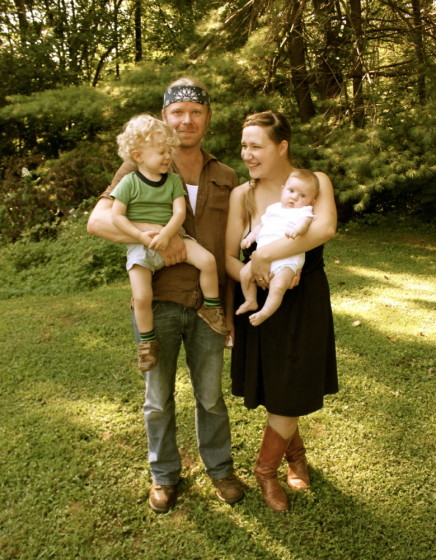
At eight months pregnant, Heather and her husband, Norman, knew they wanted their kids to frolic the woods of Chester County rather than the streets of Fishtown. In a span of five weeks, they sold their Philadelphia home and moved into a house on six acres nestled along French Creek in Spring City.
After some encouragement from friends that owned a microgreens farm, they decided to take Norman’s longtime hobby of cultivating mushrooms to a commercial level, founding Woodland Jewel Mushrooms in October 2010. Norm is a self-taught mycologist and designed and built everything in their climate controlled, sterilized grow lab, and he manages all growing operations as well as deliveries. Heather maintains their farm-to-table business model, managing sales and new business, public relations, marketing, and social media.
“The chefs that we deliver to are literally the second person to ever touch the mushrooms that we grow,” said Heather. “It’s because of the tender love and care that we’re able to provide on a small scale that our product looks unlike anything most 4- and 5-star chefs have ever seen.”
Woodland Jewel’s gourmet and rare mushrooms are currently sold wholesale to chefs and restaurants, direct to customers at Kimberton Whole Foods, and through a CSA-style partnership with COOK in Philadelphia this fall. They also encourage amateur mycologists to purchase one of their Grow Your Own kits, available through Etsy.
For up-and-coming farmers, Heather offered this advice: “Own your craft and differentiate yourself in the marketplace. Think of growing in unconventional ways. You don’t need a lot of land or space to dream big and start small in authentic, digestible stages.”
Adrian Galbraith-Paul
Farm Manager, Hood Rich Farms, Philadelphia, PA
Age: 23
Favorite Crop: Heirloom tomatoes
Hobbies: Yoga, ultimate frisbee, and dance
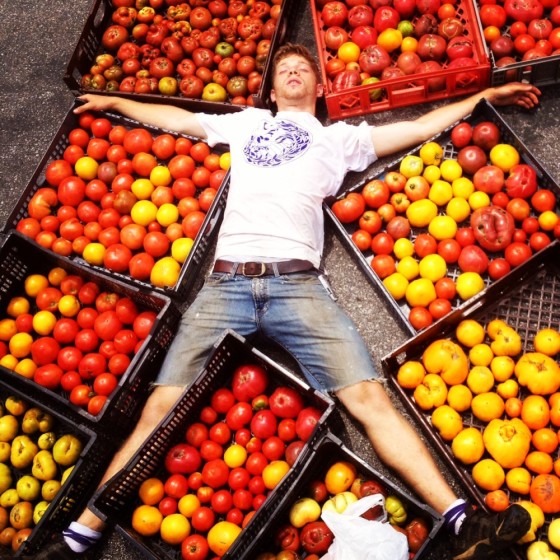
To some, a vacant Philadelphia lot is an eyesore, but to Adrian Galbraith-Paul and his business partner, Jack Goldenberg, it’s an opportunity. Adrian and Jack, along with the help of friends and community members, transformed two vacant Kensington lots into a Philadelphia farm oasis last spring. Their crew removed invasive plants and debris from their plots, trucked in organic compost from Fairmount Park and built 20 raised beds and hoop houses.
While these plots are too small for large vegetable crops, they sell edible flowers, garlic scapes, and produce to 10 restaurants including the Farm and Fisherman, Fork, and Standard Tap. Adrian also farms on rented land in Fairmount Park, where he grows a wide variety of vegetables including tomatoes, squash, beans, eggplants, brussels sprouts, leeks, lettuce, kale, edible flowers and other types of greens across four 100-foot rows.
“I get a lot of satisfaction and pride from the work,” said Adrian. “It’s reassuring to know that the skills and knowledge I’m gaining will always be useful and are a great source of joy and calories.”
Prior to becoming a farmer eight months ago, Adrian was fascinated with aquaponics, the food production system that combines cultivating plants in water with raising aquatic animals such as snails, fish, or shellfish in the tanks. While attending Kenyon College, he designed, built and managed a 500 gallon flood and drain aquaponics system raising tilapia, tomatoes, cucumbers and basil.
Mark Nuneviller
Vegetable Production Manager, Longview Center for Agriculture, Collegeville, PA
Age: 32
Favorite Crop: Strawberries
Hobbies: Cooking, reading
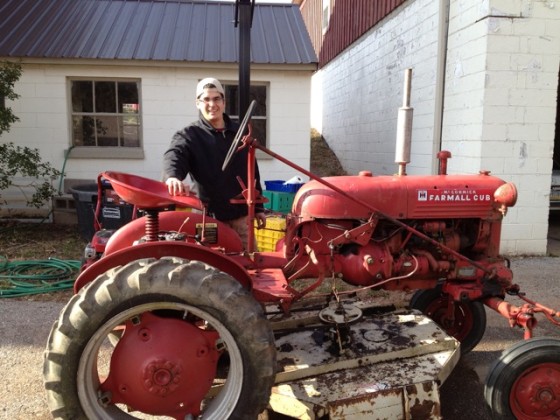
After lending a hand on a friend’s Oregon farm three years ago, Mark decided to trade power suits and a corporate career in California for power tools and farm life in Pennsylvania. As a regional farm and food hub, Longview Center for Agriculture’s 120 acres is a mixed vegetable and fruit farm with an an on-site market, CSA, wholesale distribution, pick-your-own opportunities, and large of crop of community activities run by Greener Partners.
Aside from witnessing families enjoy the fruits of his labor during strawberry picking season, one of Mark’s favorite parts of the job is developing and streamlining production systems. “As a sustainable farm, Longview has to work extra hard to maintain sufficient output for our growing customer base, while also handling typical farm issues (bugs, birds, and bacterias) through special sustainable measures,” he explained. “I am able to strategize with the other farmers on how to rotate our crops to create the best yield, manipulate the soil to make the produce taste its best, and come up with the most efficient manner of protecting our yield.”
Mark’s job entails overseeing the strategic components of the farm, managing the CRAFT (Collaborative Regional Alliance for Farming Training) apprentice class, and creating and implementing systems to plant, grow, and harvest crops using equipment and labor. A farmer requires patience, passion and creative, quick thinking. For example, Mark recently devised a netting system to protect his blueberries from hungry birds that can wipe out 95 percent of his yield in just a day.
“Farming is often rigorous and requires a certain love and dedication to the earth, so after just a short time, I knew it was the right career for me. Despite its difficulties, it’s an incredibly fulfilling job,” said Mark. To learn how you can volunteer to be a Longview farmer for a day, email [email protected] or [email protected].
Lindsey Shapiro and Landon Jefferies
Owners, Root Mass Farm, Oley, PA
Age: 28
Favorite Crop: Sweet Potato
Hobbies: Movies, beer, Tetris, spending time with friends and family
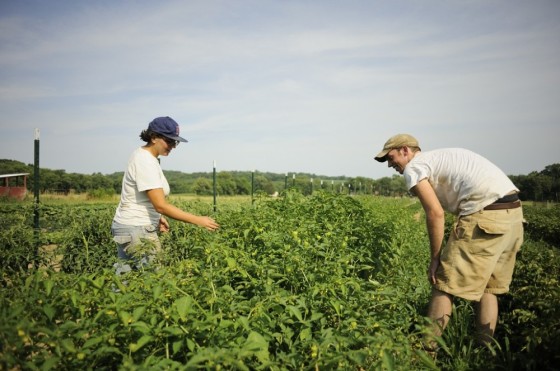
Eschewing the stock boy, lifeguard, or other typical part time teenage gig, Landon started his farming career in high school. After completing his college internship and serving as an assistant manager at Keith’s Farm in upstate N.Y., he knew there was nothing else he’d rather do. After graduation, he spent three years as an urban farmer at the Wyck Home Farm in Germantown, but the idea of starting his own farm with his wife, Lindsey, really started to grow on him. The daunting problem of raising capital to buy land made their dream seem impossible, until a friend from The Food Trust introduced them to a Berks County couple.
Exchanging vegetables and repair work for an apartment, land, and equipment usage, Root Mass Farm was founded in 2009. After two years of building up savings, spending weekends fixing their apartment and prepping their first acre for cultivation, they made the move from Philly to Oley in 2011. Now into their third season, Landon and Lindsey’s lives revolve around planting, weeding, and harvesting. The fruits and vegetables grown from organic methods on their three-acre farm are sold at Headhouse Farmers Market and Frankford Transportation Center Farmers Market throughout the summer.
“I think it’s important for people to learn how food is grown and to decide what practices matter most to them,” explained Lindsey. “Is it important that your food be grown without the use of chemical pesticides? Is it important that the farmers you support compensate their employees well? Is it important that your farmer grows rare or heirloom varieties? The more someone knows about how their food is grown and why, the better they can advocate for a just food system.”
To meet more local farmers, visit PASA (Pennsylvania Association for Sustainable Agriculture), Fair Food Philly, Local Harvest, Buy Fresh, Buy Local or a farmers market near you.
All photos courtesy of the farmers.

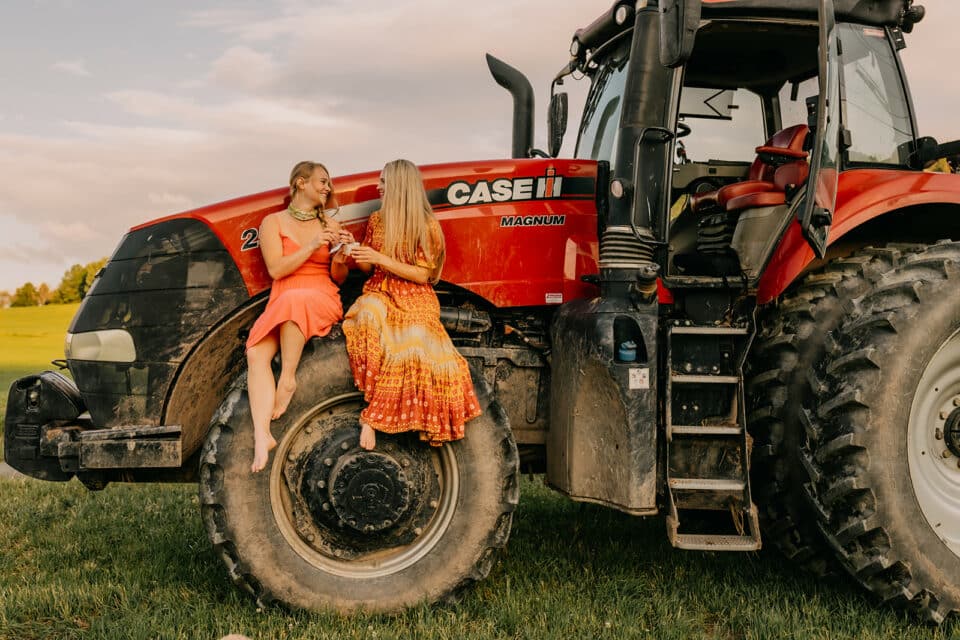


2 Comments